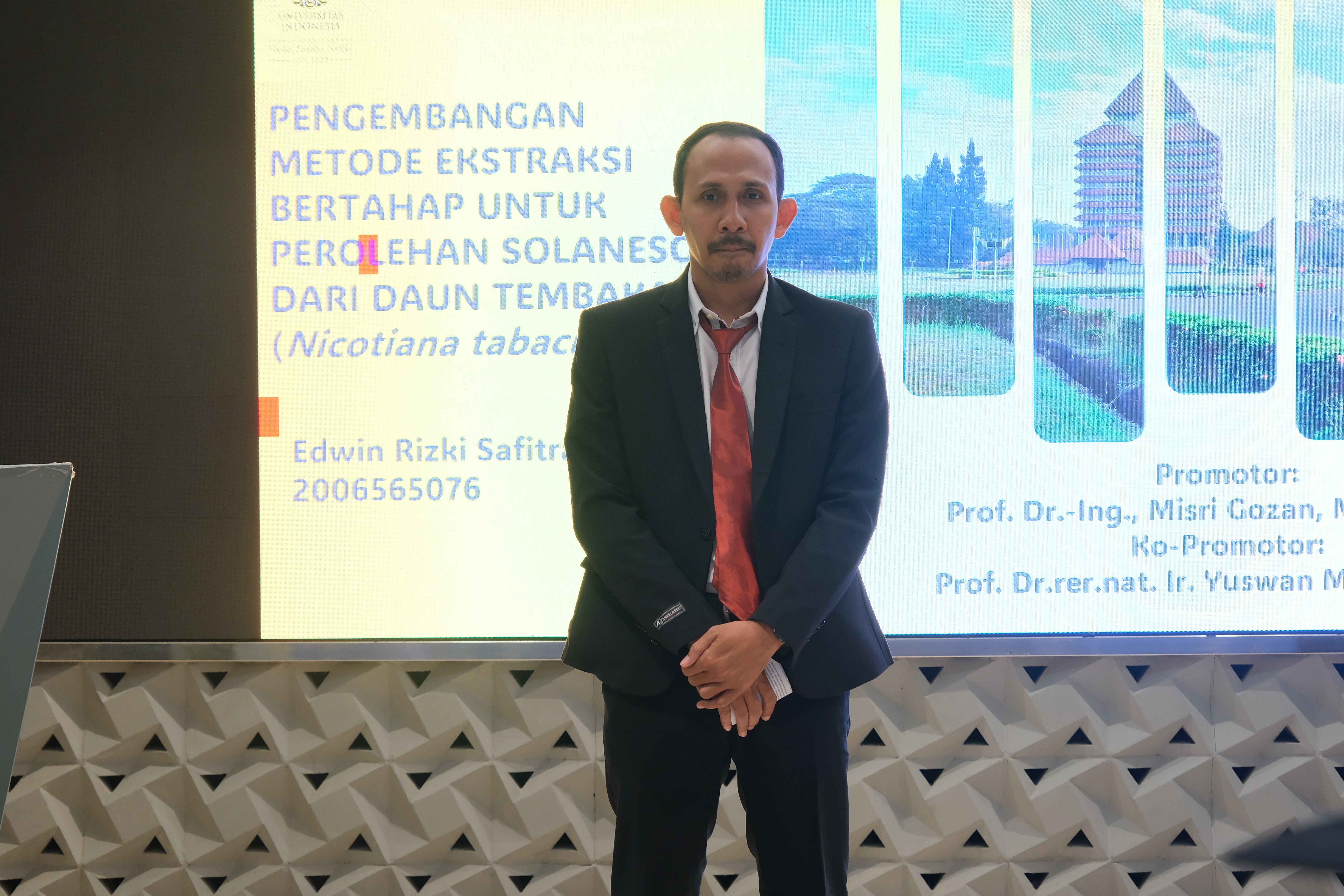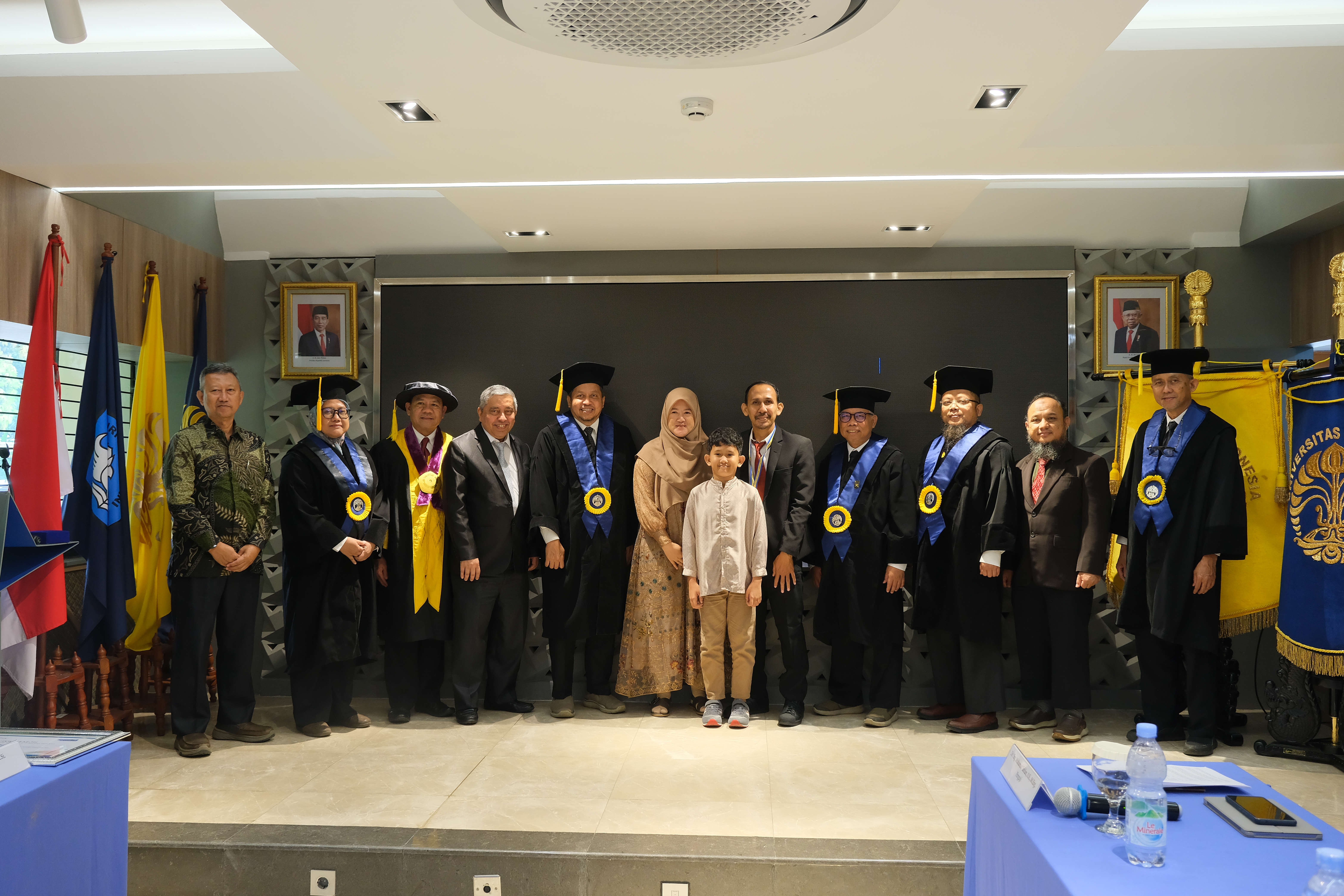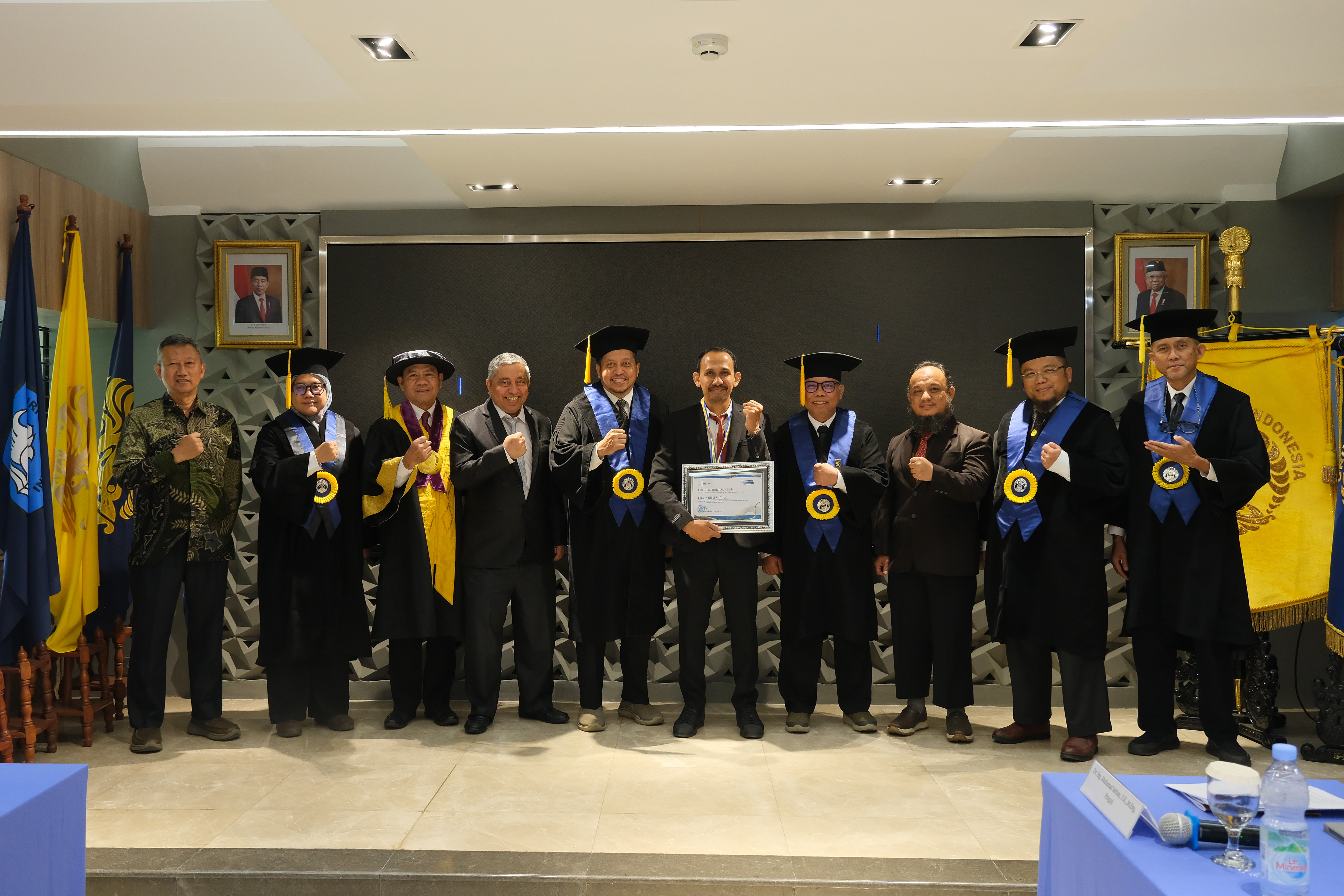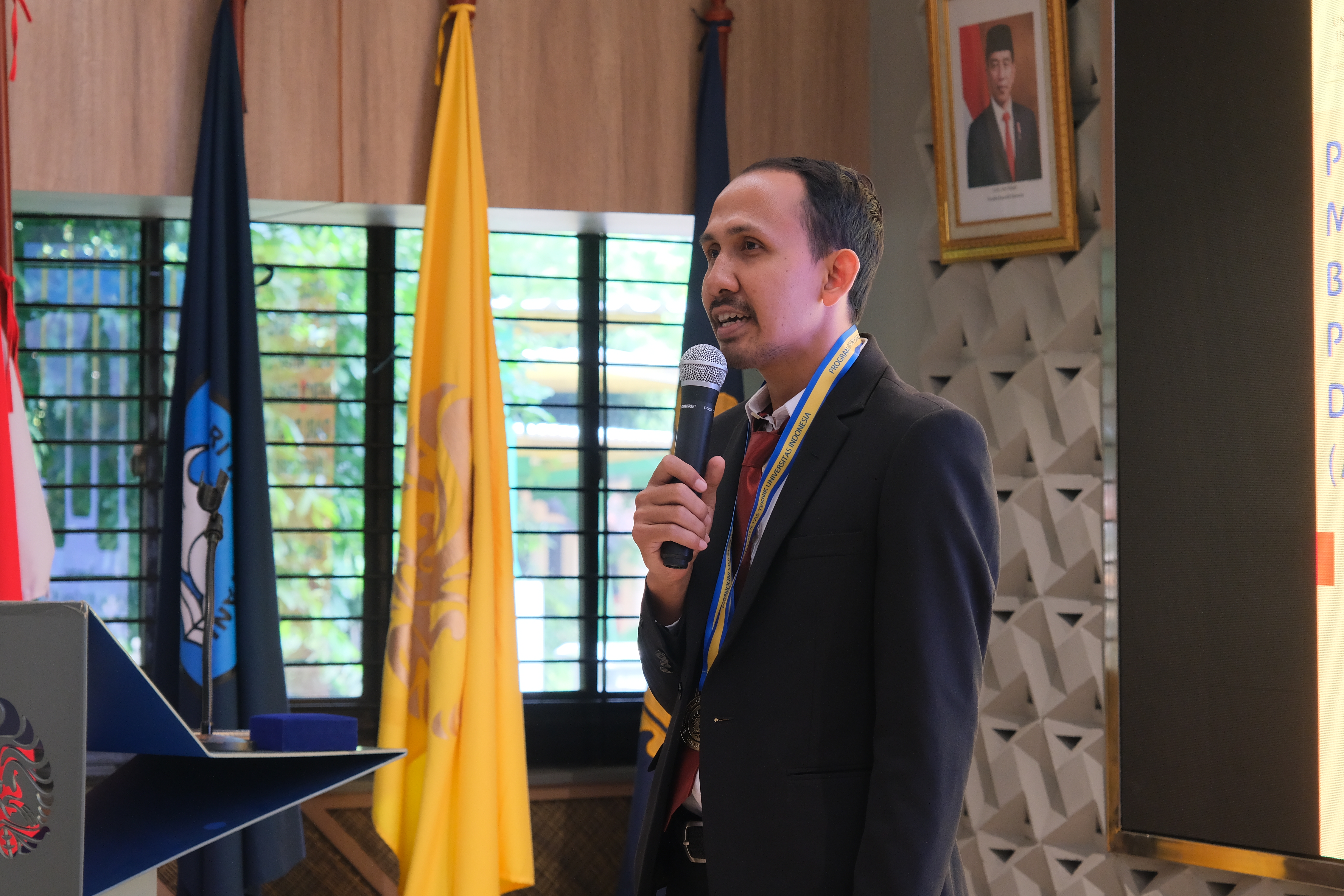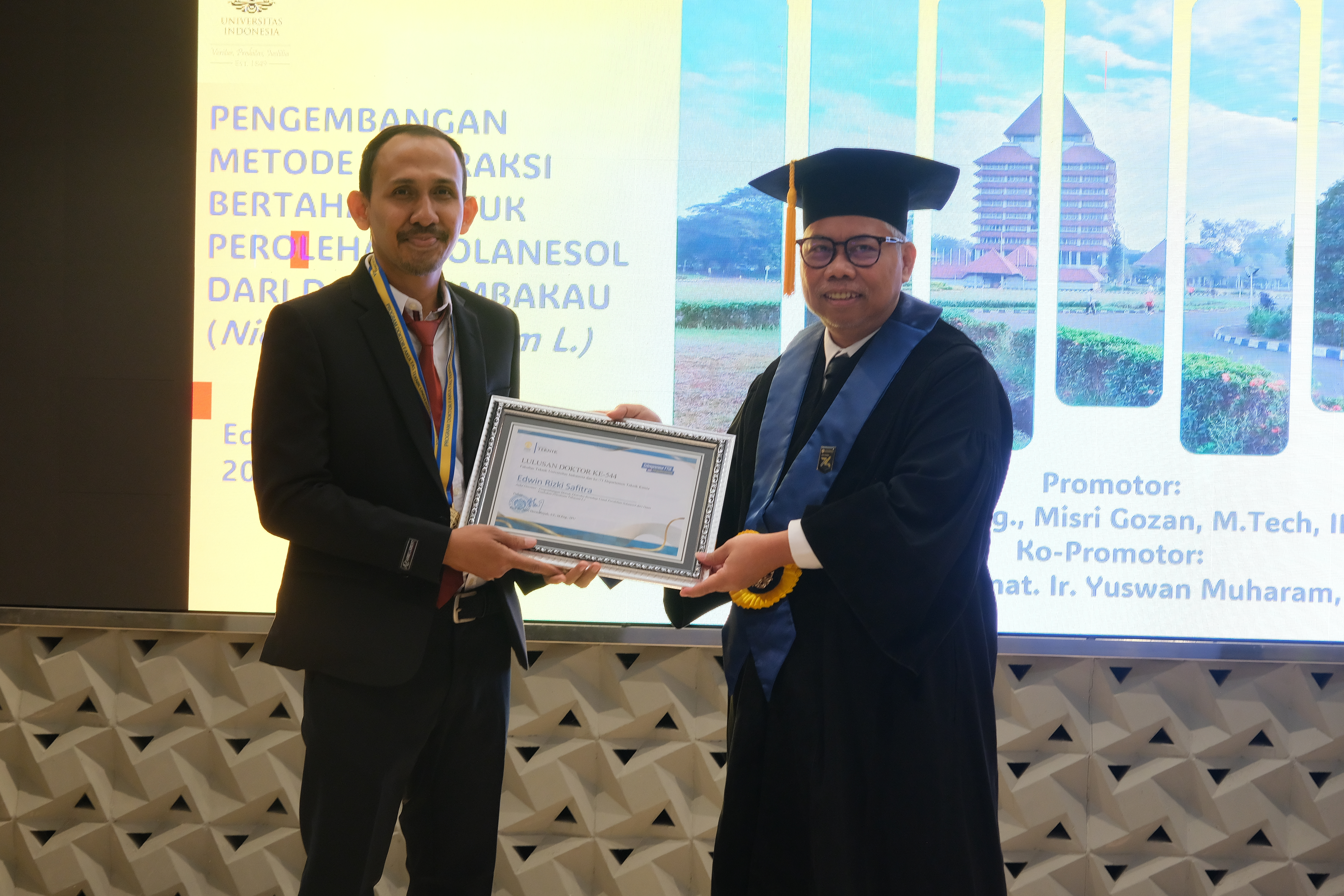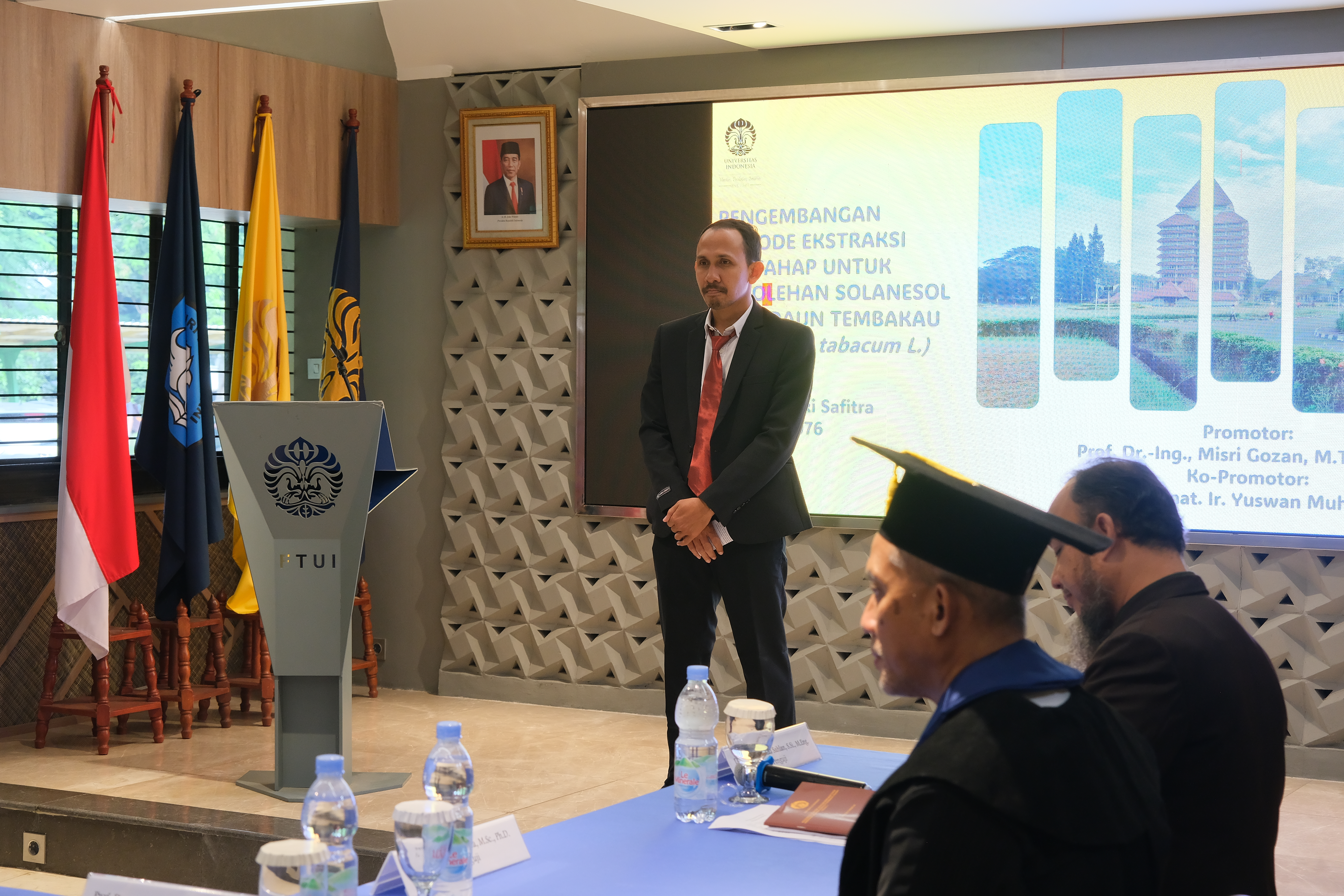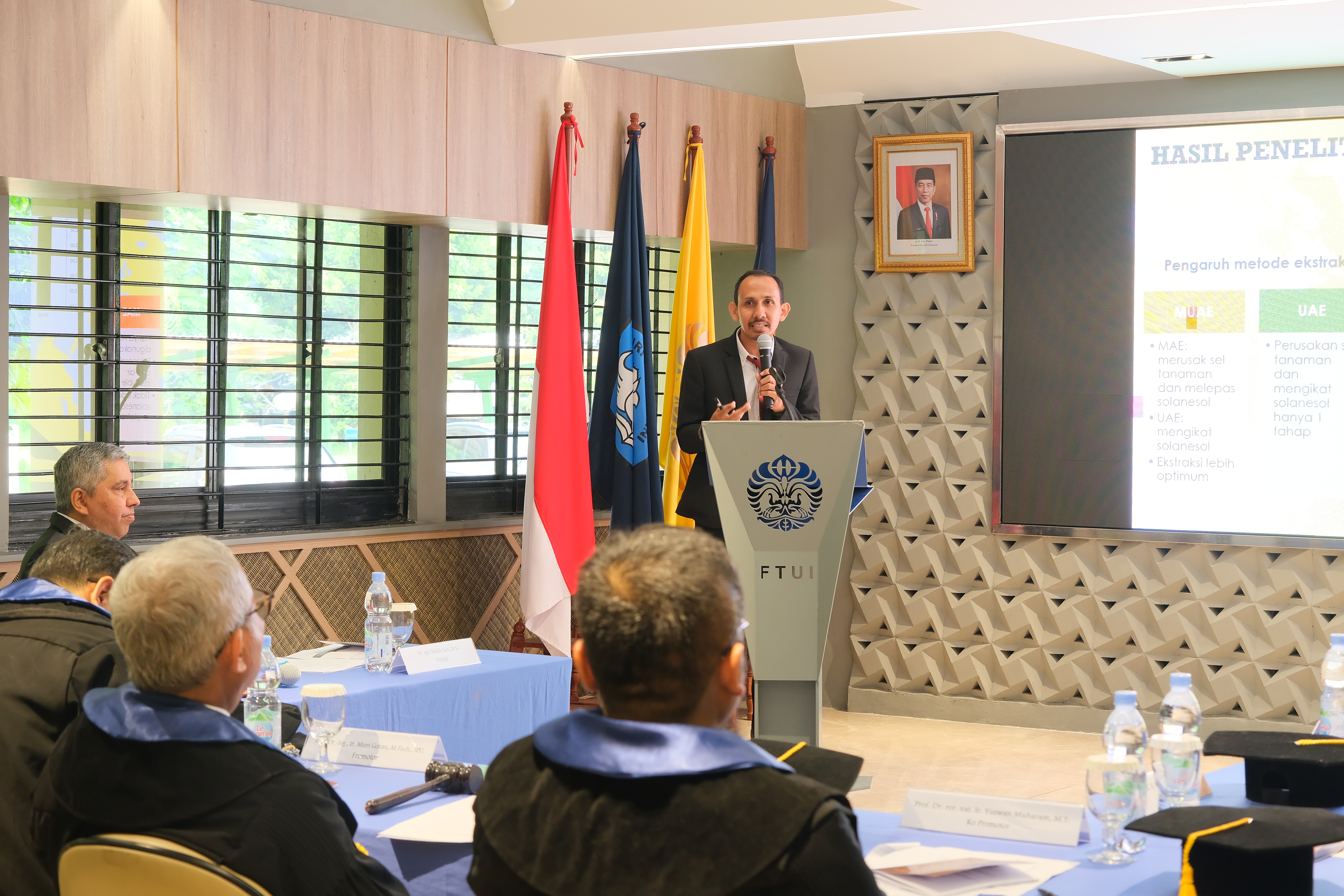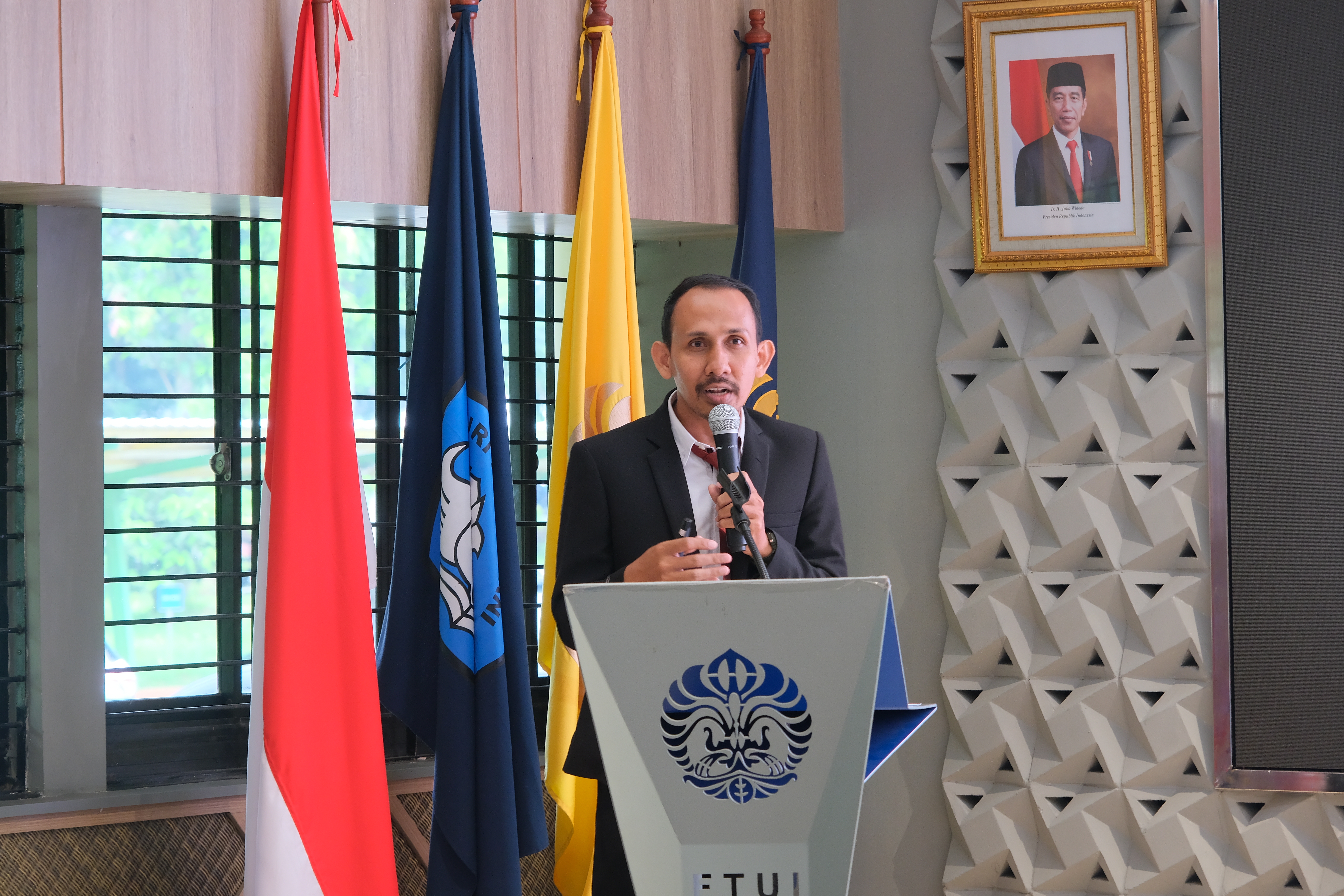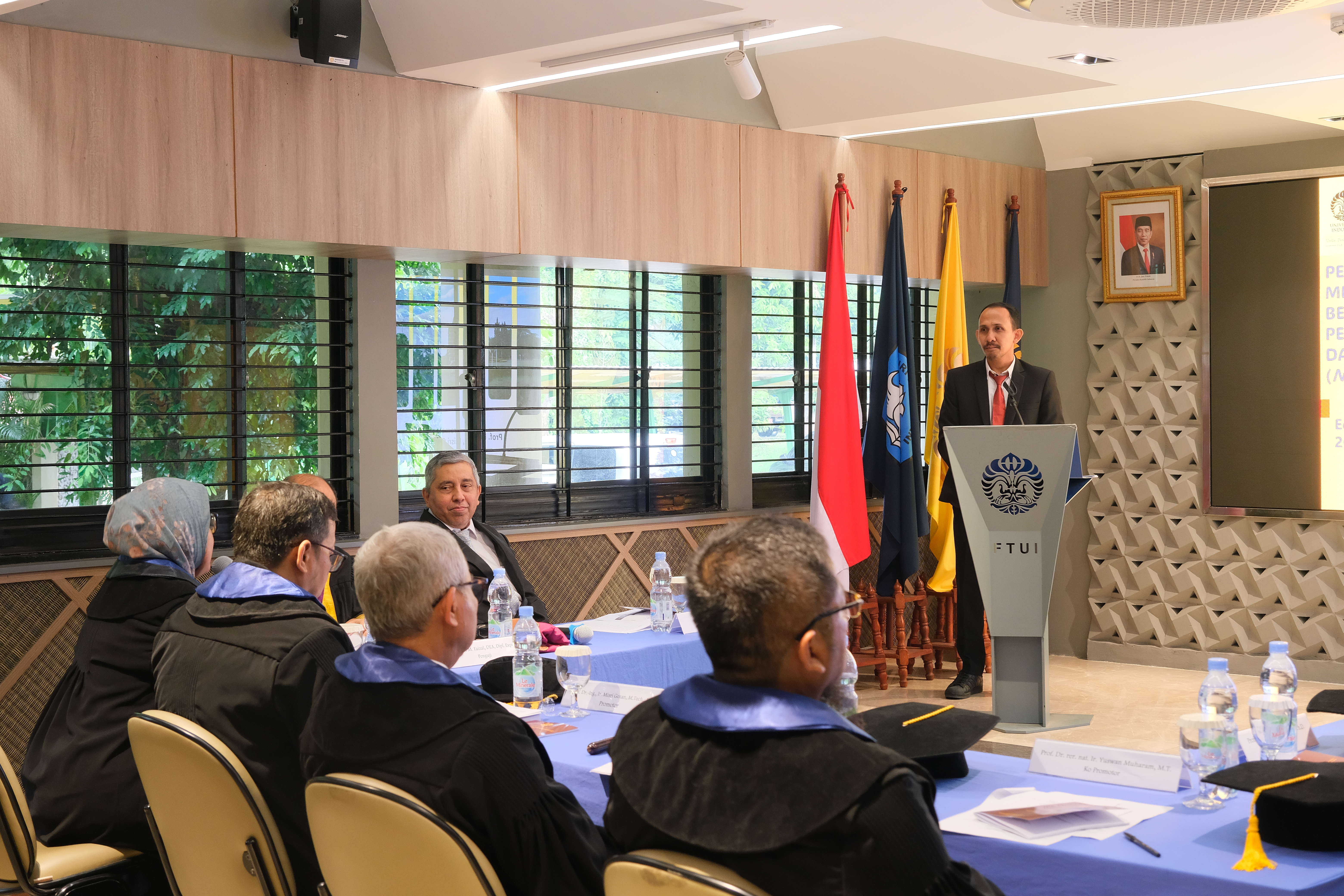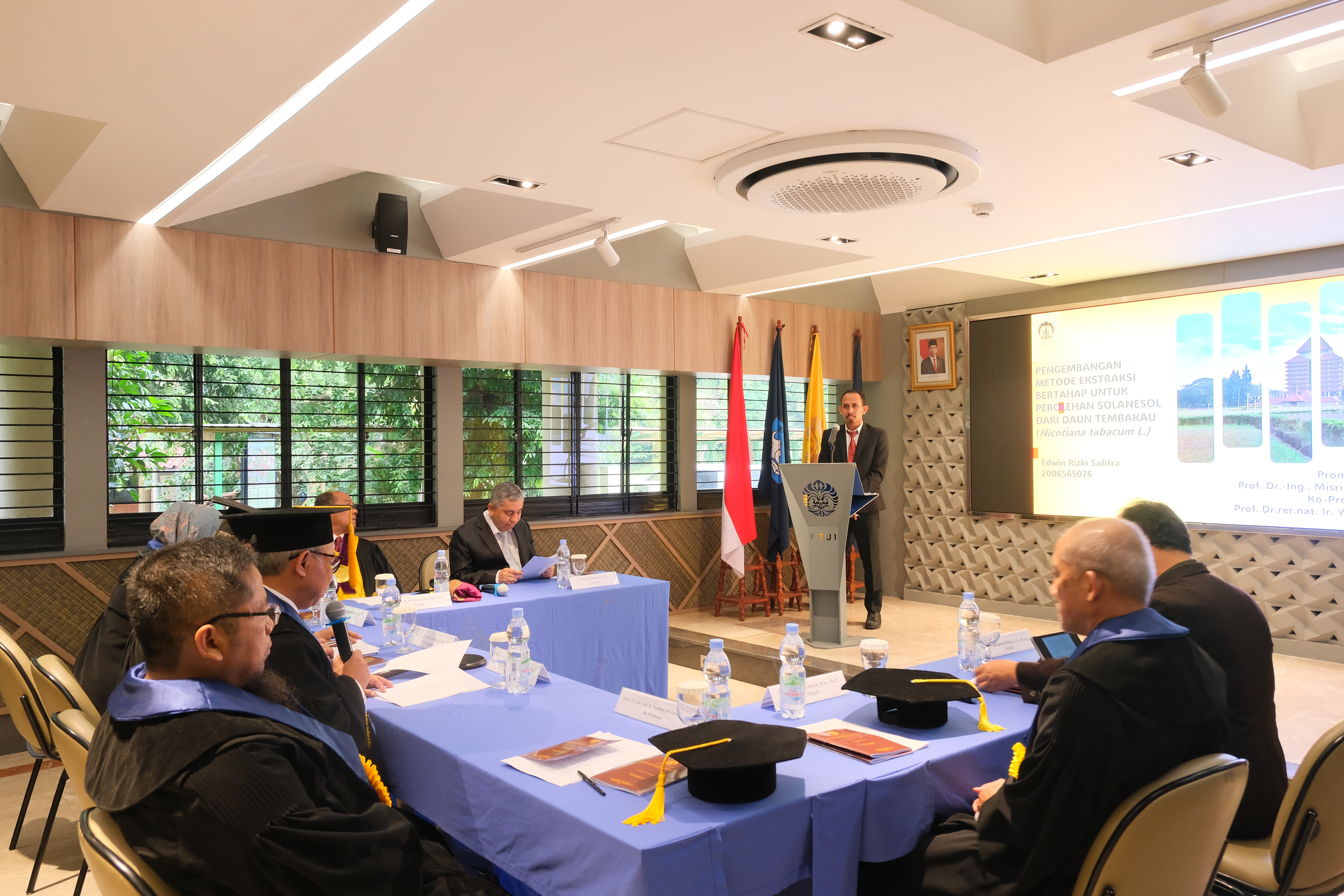Tobacco usage has long been prevalent in the cigarette industry, generating significant economic benefits for the Indonesian government. However, the large-scale tobacco industry also poses health problems and leaves behind substantial tobacco waste, harmful to the environment.
Edwin Rizki Safitra, a doctoral student in Chemical Engineering at FTUI, has developed solanesol compounds from tobacco for use in the health sector. His dissertation, “Development of a Sequential Extraction Method for Obtaining Solanesol from Tobacco Leaves (Nicotiana Tabacum L.),” was presented as part of his doctoral promotion on May 22, 2024, at the Smart Meeting Room, Faculty of Engineering, Universitas Indonesia.
Solanesol is an aliphatic terpene alcohol composed of nine isoprene units. Among the Solenaceae family, tobacco has the highest solanesol content. Solanesol’s structure contains several unconjugated double bonds, which enable the molecule to absorb free radicals. Additionally, solanesol is known for its antioxidant, anti-inflammatory, neuroprotective, and antimicrobial properties and as an intermediate compound in synthesising coenzyme Q10 and vitamin K2, which are useful in treating heart disease and cancer.
Due to these reasons, the demand for solanesol has increased from 4,000 tons in the 2000s to 66,000 tons in 2022. Solanesol can be obtained using biosynthesis techniques, but the lengthy and complex process makes this method rarely used on a large scale. Extraction methods remain the most widely used approach for obtaining solanesol from natural materials.
“In this research, solanesol extraction from tobacco leaves was performed sequentially using microwave-assisted extraction (MAE) followed by ultrasonic-assisted extraction (UAE). The advantage of using this method is that the extraction process takes only 1.67 minutes, consisting of 1.5 minutes for MAE and 0.17 minutes for UAE, compared to conventional extraction methods which take up to 1 hour,” said Edwin Rizki Safitra.
Besides successfully extracting solanesol from tobacco leaves quickly, this research also achieved an optimum yield of 2.05% (w/w) using hexane as a solvent and 1.49% (w/w) with PE as a solvent. Under the same conditions, the nicotine yield was 1.94% (w/w) and 0.75% (w/w), respectively. The solanesol purity of 88.7% makes it market-ready. This research aims to transform the use of tobacco into a more valuable and health-safe product.
FTUI Dean, Prof. Dr. Ir. Heri Hermansyah, S.T., M.Eng., IPU., stated, “This research is a significant breakthrough in maximizing the potential of tobacco leaves, which have so far been used only as a raw material for cigarettes. Through this research, tobacco leaves can be processed into solanesol compounds with high economic value and health benefits. I appreciate Edwin Rizki Safitra’s hard work in developing this innovative and efficient sequential extraction method. I believe this research will make a positive contribution to the development of the health industry in Indonesia.”
Edwin Rizki Safitra earned his doctorate with honours (Cum Laude) from the Faculty of Engineering, Universitas Indonesia. He is the 71st doctoral graduate from the Chemical Engineering Department and the 544th doctoral graduate from the Faculty of Engineering, Universitas Indonesia. The Doctoral Promotion Examination was led by the Chairman, Prof. Ir. Mahmud Sudibandriyo, M.Sc., Ph.D., with Promoter Prof. Dr.-Ing Misri Gozan, M. Tech. IPU., and Co-Promoter, Prof. Dr. nat. Ir. Yuswan Muharam, M.T., and the Examining Team consisting of Prof. Dr. M. Faizal, DEA Dipl Expert., Prof. Ir. Kamarza Mulia, M.Sc., Ph.D., Prof. Yuni K. Krisnandi S.Si., M.Sc., Ph.D., Dr. apt. Mahdi Jufri, M.Si., Dr. Muhamad Sahlan, S.Si., M.Eng.
***
Public Communication Office
Faculty of Engineering, Universitas Indonesia

